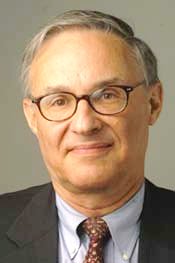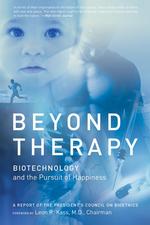UN MENSAJE OPORTUNO

[Hay que profundizar en lo que la familia es y en lo que la familia representa para cada persona. Decía G. K. Chesterton —hace ahora un siglo, más o menos— que quienes hablan contra la familia no saben lo que hacen, porque no saben lo que deshacen.
Y añadía con su argumentación brillante y lúcida: Entre las instituciones atacadas así, de manera nada inteligente, está la creación humana fundamental:
La batalla contra la familia persiste en la sociedad actual, con amenazas y ataques más fuertes que nunca. Como ha escrito Jaime Nubiola en relación al Encuentro Mundial de las Familias: Ahora en su visita a Valencia el Papa Benedicto XVI, con toda la autoridad moral e histórica que le ha sido conferida, desea presentarnos la verdad sobre la familia porque en nuestra sociedad contemporánea se encuentra amenazada por muy diversos factores. La familia es una realidad que supera nuestro pensamiento sobre ella y por esta razón debe quedar por encima de nuestras diferencias políticas.
De todo esto también ha hablado con mucha claridad Mons. Fernando Sebastián. Reproducimos un artículo suyo que acaba de publicar el Diario de Navarra (20-VII-2006), en el que hace unos interesantes comentarios sobre la familia y sobre el mensaje de esperanza que el Papa ha lanzado desde Valencia al mundo entero.]
#330 Hogar Categoria-Matrimonio y Familia
por Mons.
________________________ Un mensaje oportuno. Es lo menos que se puede decir de las intervenciones del Papa Benedicto en su reciente viaje a Valencia. Vino a clausurar el Vº Encuentro mundial de la Familia. Quiso lanzar desde Valencia un mensaje de esperanza a todas las familias del mundo y lo hizo con su estilo personal, hecho de sencillez, claridad, amabilidad y firmeza.
Un mensaje oportuno. Es lo menos que se puede decir de las intervenciones del Papa Benedicto en su reciente viaje a Valencia. Vino a clausurar el Vº Encuentro mundial de la Familia. Quiso lanzar desde Valencia un mensaje de esperanza a todas las familias del mundo y lo hizo con su estilo personal, hecho de sencillez, claridad, amabilidad y firmeza.
Lo que el Papa dijo nos sirve, por supuesto, a los católicos, iluminará a quienes se encuentren en el terreno movedizo de la duda y hasta puede hacer reflexionar a alguno de los que piensan que el cristianismo ha quedado superado por el viejo laicismo repristinado que ahora parece dominar y querer transformar nuestra sociedad. El Papa comienza diciendo que la Iglesia valora y proclama la verdad de la familia, fundada sobre el matrimonio indisoluble entre hombre y mujer, entendido como un compromiso de amor fiel, estable, irrevocable, generoso y fecundo. El matrimonio entre varón y mujer es una realidad natural, querida por Dios, rescatada y santificada por la redención de Cristo. En la realidad matrimonial y familiar se manifiesta la vocación del hombre para el amor, pues estamos hechos a imagen y semejanza de Dios que es Él mismo familia y amor infinitos.
La familia manifiesta y desarrolla la naturaleza relacional y social de la persona. Es el primer núcleo de la sociedad. Lo que daña a la familia daña a las personas y a la sociedad entera. La familia es un bien insustituible para los hijos, un bien necesario para los pueblos. El amor entre el padre y la madre ofrece a los hijos una gran seguridad y les enseña a conocer y vivir el amor verdadero. En la familia se aprende a amar y a ser amado. Por eso la familia es el lugar adecuado para nacer, crecer y vivir en la verdad del amor. Sin una familia estable las personas, como la sociedad, pierden la confianza y la alegría de vivir. El ser humano, sin la experiencia básica de una familia bien construida en un amor verdadero, queda herido para siempre.
En la familia, con la vida corporal, recibimos el patrimonio espiritual de la cultura y con ella lo más valioso de nuestra tradición espiritual que es la fe cristiana. Los hijos tienen derecho a ser bien educados por sus padres, y los padres tienen el derecho y la obligación de educar y guiar la vida cultural y espiritual de sus hijos. Los padres transmiten la fe a sus hijos cuando rezan con ellos, cuando les acompañan en la iniciación sacramental y eclesial, cuando en la vida diaria del hogar se manifiesta la relación filial con Dios, con Jesucristo y con la Iglesia. La tarea más grande de las familias es la transmisión de la fe a los hijos y la formación de personas libres y responsables. En la familia, gracias al ejemplo de los padres, los hijos descubren el gozo de vivir en la verdad y en el amor, esta experiencia les ayudará a vencer los obstáculos que luego ellos han de encontrar en su vida. Los hijos tienen derecho a nacer y vivir en un hogar que les dé la experiencia de amor que necesitan para descubrir y cultivar su propia humanidad. Los padres son los primeros educadores de sus hijos y los primeros anunciadores de la fe para ellos. Los abuelos amplían la experiencia del amor y así enriquecen la vida familiar. En un mundo tan disgregador como es el nuestro, las familias no pueden estar solas. La Iglesia tiene que ofrecerles la posibilidad de unirse y de ayudarse en el recorrido de su camino humano y espiritual, social y apostólico. Las parroquias y los movimientos o asociaciones familiares tienen que salir a su encuentro.
Actualmente, con frecuencia se pretende organizar la sociedad contando sólo con los individuos aislados, sin tener en cuenta la realidad intermedia de la familia. Ahora bien, prescindir de la familia conduce a una cultura del egoísmo, a una vida sin amor ni generosidad, a una vida sin alegría. La familia nos proporciona las experiencias más profundas de amor, de libertad y de responsabilidad. Sin esta educación no puede haber buenos ciudadanos ni puede haber tampoco sociedades sanas y estables. Ante la presión de una cultura del egoísmo que amenaza la humanidad del hombre, la familia tiene que ser reconocida y apoyada como la gran escuela del amor, de la libertad, de la tolerancia, de la justicia y de la solidaridad.
Anunciando y defendiendo la verdad del matrimonio y de la familia, la Iglesia y los cristianos hacemos un gran servicio al bien común, al bien de la sociedad entera. Los gobernantes tendrían que pensar en esto y sacar las consecuencias, al margen de cualquier ideología. La Iglesia y las instituciones civiles tendríamos que ir de acuerdo y complementarnos en el servicio a las familias normales, estables, generosas y fecundas. Ellas forman el entramado básico de la sociedad y de la Iglesia.











